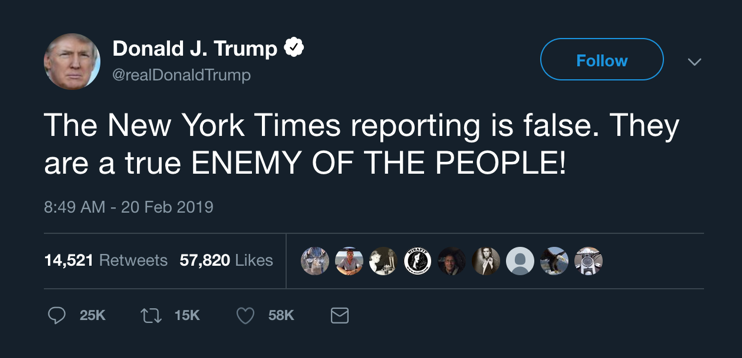US - #WeeklyAddress: January 28 - February 3: Journalists arrested at South Carolina apartment complex while in search of public records
Below are the most notable incidents regarding threats to press freedom in the US during the week of January 28 - February 3:
Journalists arrested at South Carolina apartment complex where two died
Reporters Susan Ardis and Jenna Kurzyna were detained and handcuffed at a public housing complex in Columbia, South Carolina, on January 29. Ardis and Kurzyna are reporters with the local CBS affiliate, WLTX, and were on location at the Allen Benedict Court public housing complex asking for public records on a recent gas leak that left two dead. Both identified themselves as reporters but were still handcuffed by private security and told they were trespassing. The security officers were brought in to patrol the area as residents returned to their homes to collect belongings after the gas leak forced them to evacuate. “I couldn’t imagine why a reporter was arrested if they identified as a reporter,” a lawyer told The State, a local newspaper. Kurzyna and Ardis were released shortly after and the Columbia Housing Authority has since apologized for the “unfortunate incident.”
President Trump criticizes Fox News reporters for coverage of border wall
President Donald Trump called out Fox News reporters John Roberts and Gillian Turner in a January 27 tweet, saying they “have even less understanding of the Wall negotiations than the folks at FAKE NEWS CNN & NBC!” The tweet came two days after President Trump struck a deal to reopen the government without funding for a border wall. It isn’t uncommon to see the president taking jabs at CNN and NBC, but this was a rare criticism of Fox News. President Trump appears regularly on the network for interviews and repeatedly praises its hosts and ratings. Fellow journalists were quick to defend their colleagues online. In a series of tweets on January 28, Fox News anchor Julie Banderas blasted the president’s tweets: “Bullying journalists is not Presidential. Period.” Another tweet read, “@realDonaldTrump This is NOT right. I stand by my colleagues @johnrobertsFox and @GillianHTurner They don’t deserve this. No reporter does. They are doing their jobs and reporting the facts.”

President Trump discusses “Fake News” and its impact with New York Times
President Donald Trump spoke at length about his relationship with the media during a January 31 Oval Office interview with The New York Times. When asked about his attitude towards journalists President Trump shifted his answers, calling himself the “victim” when it came to unfair coverage. In the meeting, which he held with Times publisher A.G. Sulzberger and reporters Maggie Haberman and Peter Baker, President Trump alluded to his hometown of New York and insisted he was “entitled to a great story — just one — from my newspaper.” He also took credit for coining the term “fake news,” but didn’t admit fault for how the term has been used by foreign governments to crack down on journalists. “I don’t like that,” said the president. “I mean I don’t like that. I don’t like, though I do think it’s very bad for a country when the news is not accurately portrayed.” After President Trump said the Times “treats me so unbelievably terribly,” Sulzberger asserted, “You know our job is to cover people and institutions of power toughly and aggressively. And it’s never fun to be on the other side of that. You have my commitment that as we do that … toughly and aggressively, we will also do it fairly.” This is not Sulzberger’s first meeting with the president; after a previous meeting in July, Sulzberger published a statement in his paper expressing his concern for President Trump’s “deeply troubling anti-press rhetoric.”
Indiana high school allegedly prohibits the publication of article on sexual assault
Students at a public high school in Indiana were told not to publish a story about sexual assault in their school magazine because of what school officials called the “sensitive” nature of the subject, BuzzFeed News reported on January 28. After a Plainfield High School student was arrested and accused of a series of sexual assaults in October, then-editor and Plainfield alumna Kyra Howard was told the case wouldn’t be appropriate for the magazine to cover. Howard suggested instead that the students report on the prevention of sexual assault on their campus and were again denied permission. “I don’t understand why the administration wouldn’t want us to put out something that’s factual,” said Howard. School officials told BuzzFeed they have the right to censor controversial articles, especially if the school pays for the publication—the school, however, does not fund the magazine. State legislators across the country have tried introducing bills to protect student journalists, but just 18 have succeeded in prohibiting administrative censorship; Indiana is not one of them.
The United States ranks 45th out of 180 countries in RSF's 2018 World Press Freedom Index.
For the latest updates, follow RSF on twitter @RSF_en.



